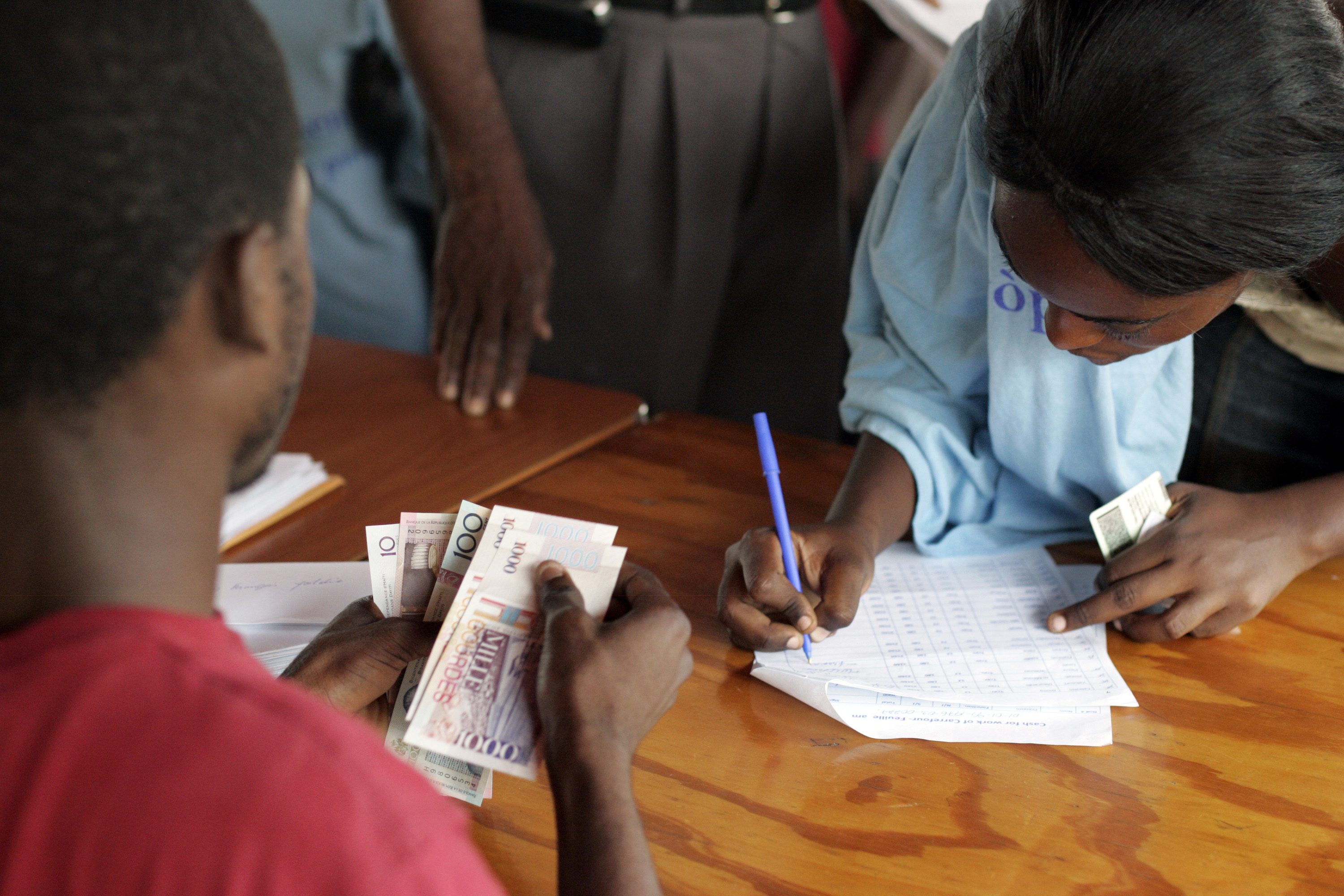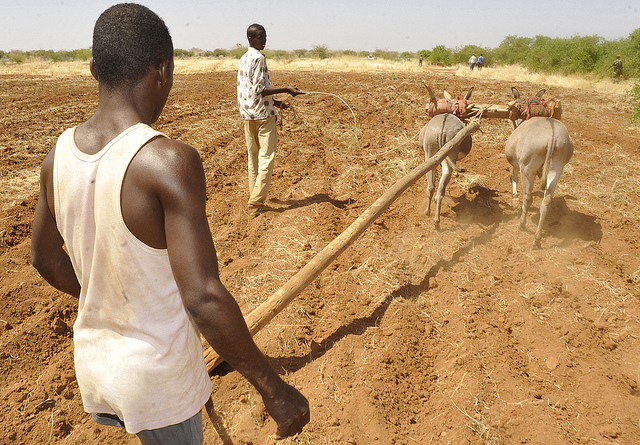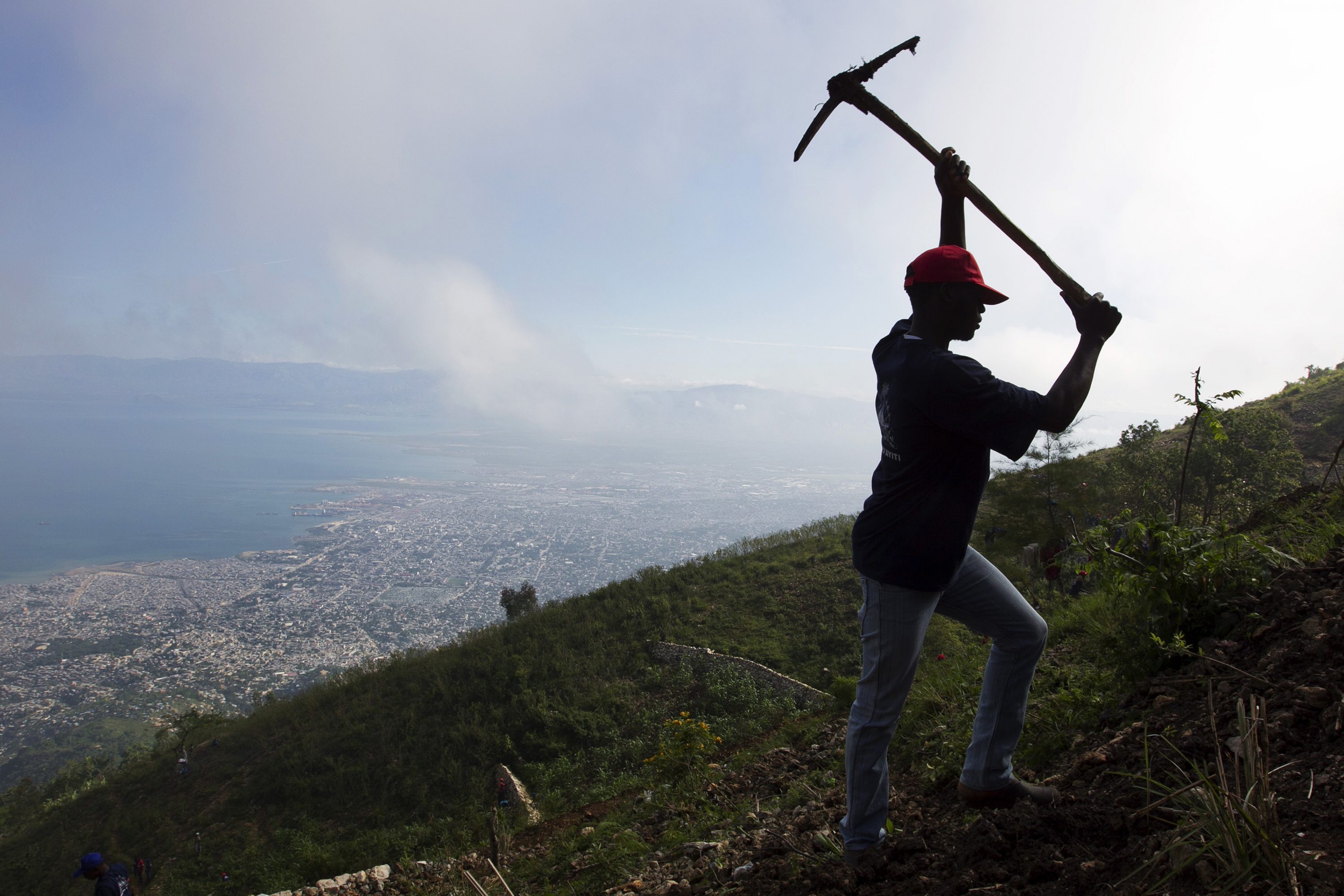Cash Based Programmes
Strengthening the resilience of agricultural livelihoods to adverse climate events and economic shocks is a corporate priority under FAO’s current Strategic Framework, as is linking social protection programmes (including cash-based transfers) with agricultural productive outcomes. Such schemes are associated with agriculture and food security programmes that promote local markets and decent rural employment, as well as increasing access to agricultural inputs, goods, services and essential infrastructures by rural populations.
Used within emergency and rehabilitation contexts, cash-based transfer programmes are embedded within and support longer-term development and social protection initiatives. These programmes provide opportunities to create strategic partnerships with local authorities, relevant ministries and civil society; strengthen and promote linkages with the private sector (i.e. traders, producers, financial institutions); and at the same time provide the affected populations with a sense of empowerment and dignity by allowing them to choose the goods and services they need and prefer.
Requests both by donors and recipient countries to widen the modalities for the delivery of assistance to beneficiaries, especially in crisis risk management, humanitarian and transition programming, have led to the growing use of cash transfers and voucher-based schemes by FAO – in a total of 42 countries since 2001. The organization chooses the most appropriate type of transfer tool following a needs assessment, market analysis and review of response options and capacities. There are four main types of cash-based transfers:
- Unconditional cash transfers – cash is given to recipients without stipulation
- Conditional cash transfers – cash is given to recipients based on a stipulation (e.g. a day’s work on a public infrastructure project)
- Cash vouchers – the voucher entitles the recipient to buy a specific value of commodities or services at shops participating in the project
- Commodity vouchers – the voucher is exchanged for a fixed quantity of commodities (e.g. seeds, agricultural tools, inputs) or services from traders participating in the project, often in the setting of an agricultural input trade fairs.
Related article: “AN EMPOWERING PATH”
In the Photo: Haiti “Cash for Work” participants receive payment. Photo Credit: UN Photo/Sophia Paris
The May 2016 World Humanitarian Summit and the adoption of the commitments (known as the Grand Bargain) designed to improve the world’s approach to humanitarian and development challenges, reaffirmed the need to put people at the center by building community resilience through, among other things, increasing cash-based programming and using it as “the preferred and default method of support.” Within this framework, FAO has committed to: (1) operationalize the goal of cash-based delivery of assistance as a preferred method, (2) scale up programmes on cash-based and CASH+ interventions (up to a third of its humanitarian/resilience portfolio), and (3) strengthen internal capacities on cash-based programming and implementation.
An example of the type of programmes FAO has been implementing include a cash-based approach to providing assistance to vulnerable groups, such as the resilience programme in Somalia.
In the Photo: Dollow, Somalia – Somali small scale farmers ploughing fields using donkey traction. Photo Credit: UN Photo/Simon Maina
Case Study – Somalia
The cash for work (CFW) scheme in Somalia is part of FAO’s resilience sub-programme in the country. While CFW projects have been undertaken by FAO Somalia since 2007, they were scaled up in 2011 in response to the famine. These projects have a dual purpose: (1) to provide cash support to eligible households to assure the minimum food basket, as well as to offer an alternative source of employment to mitigate the impact of crises; and (2) to rehabilitate and/or expand productive community assets (e.g. canals, feeder roads, water catchments, etc.).
In 2013 and 2014, the following activities were carried out and deliverables achieved by FAO in South Central Somalia as cited on the Evaluation of FAO’s Resilience Sub-programme in Somalia:
- Creation of temporary employment through CFW (e.g. to expand or rehabilitate agricultural infrastructure): temporary cash for work reached 59, 475 households with total cash transfers amounting to 4,956,586 USD, helping rehabilitate or construct 386 irrigation canals, 123 feeder roads and 517 water catchments;
- Expansion, rehabilitation and construction of productive infrastructure through CFW or contractors: 42 km of canals were rehabilitated in South Central Somalia and Somaliland, with related small infrastructure;
- Construction of 75 shallow wells in Somaliland and in the Dur-Dur watershed area (in collaboration with WFP).
In the Photo: Haitians clear and save arable land in the “Cash for Work” program. Photo Credit: UN Photo/ Logan Abassi
In addition to these material achievements, the recent qualitative impact assessment of FAO CFW activities in Somalia carried out by Oxford Policy Management highlighted several other benefits at a community-level from this type of temporary employment: ‘reduction of distress sales of livestock during the lean season, ability to maintain existing or build new household assets, increased households’ food security and creditworthiness of beneficiaries’.
At the same time, best practices and lessons learned from this experience and others are constantly being taken into account by FAO when designing new cash-based programmes, including them as part of larger interventions and customized as required by the situation, with a need for good coordination with other agencies and the local community; careful assessments of which type of infrastructure to rehabilitate; and careful selection of able workers to ensure the inclusion of those fit for work but marginalized.
Recommended reading: “‘THE REPROACH OF HUNGER’ BY DAVID REIFF”
_ _












